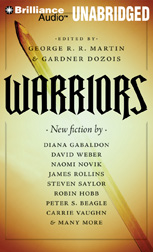
 The SFFaudio Podcast #134 – Jesse, Scott, Tamahome, Eric S. Rabkin, and Jenny talk about The Curious Incident Of The Dog In The Night-Time by Mark Haddon.
The SFFaudio Podcast #134 – Jesse, Scott, Tamahome, Eric S. Rabkin, and Jenny talk about The Curious Incident Of The Dog In The Night-Time by Mark Haddon.
Talked about on today’s show:
the upside-down dog cover, Jesse doesn’t like the cover, Eric finds hidden meaning in the cover, Sir Arthur Conan Doyle, is it mainstream or a mystery or YA?, Asperger’s or autism?, what is it like to be inside another person’s head?, generates tolerance, Elaine’s post on TED Talk: Elif Şafak on The Politics Of fiction, neurotypical characters, extraordinary abilities and extraordinary deficits, Constituting Christopher: Disability Theory And Mark Haddon’s by Vivienne Muller, Scott loves lists, the reader is ahead of the narrator, unreliable narrators, Flowers For Algernon by Daniel Keyes, The Speed Of Dark by Elizabeth Moon, mystery vs. family drama, Oedipus, “Sophocles not Freud”, Christopher Robin, (Winnie The Pooh), “there is something naively wonderful going on”, information vs. meaning, who did it? vs. why did it get done?, moving from what to why, Eric found the book joyful and uplifting, at the end?, abusive vs. human vs. murderous, PETA would not be pleased, “sometimes people want to be stupid”, Occam’s Razor, “now I know what box they fit into”, Cinderella, the Grimm Brothers, Jesse loves the infodumps, the asides are a highlight, where is Siobhan?, the Recorded Books audiobook version has a great narrator (Jeff Woodman), prime numbered chapters, are the pictures necessary?, Orion (the hunter in the sky), the most common word in the book is ‘and’, “he’s adding things up”, “this is a very true book”, “lies expand infinitely in all directions”, what Science Fiction and mystery look for, “sometimes people want to be stupid”, prime numbers are like life, rationalism vs. empiricism, Christopher yearns for uniqueness, right triangles, the appendix (is not in the audiobook), the brown cow joke, unreliable narrator, Conan Doyle’s beliefs, information vs. understanding, Harriet The Spy, dude don’t stab people, “a tag cloud of the novel”, Alexander And The Terrible, Horrible, No Good, Very Bad Day by Judith Viorst, Slaughterhouse Five by Kurt Vonnegut, Jr., “Repent Harlequin!”, Said The Ticktockman by Harlan Ellison, sense of wonder, Toby the rat (Algernon), Uncle Toby, The Life And Opinions Of Tristram Shandy by Laurence Sterne, the poet “does not number the streaks of the tulip 18th century”, The History of Rasselas by Samuel Johnson, Candide by Voltaire, books inside books, Have Spacesuit, Will Travel by Robert A. Heinlein, Three Men In A Boat by Jerome K. Jerome, Donald E. Westlake, Lawrence Block, Jo Walton’s Among Others, the third season of Star Trek, art making reference to itself, The Time Machine by H.G. Wells, Star Trek‘s third season, Spectre Of The Gun, “we just need the skeleton to tell the story”, “most of the protagonists in Science Fiction novels don’t read Science Fiction”, Jenny’s review of Ready Player One, The Emperor Of Mars by Allen_Steele (audio link), standing the test of time, Jesse’s extended metaphor about winnowed books washing up on beaches 100 years later, Eric is reading Uncle Tom’s Cabin by Harriet Beecher Stowe, propaganda melodrama, Super Sad True Love Story by Gary Shteyngart, Light In August by William Faulkner, the humanizing influence, comparing The Curious Incident Of The Dog In The Night-Time with The Speed Of Dark, the novel’s form shapes the novel market, Jesse thinks series hurt readers, wondering what’s going to happen next vs. what idea is being explored, the value of series, the train trip, the maths exam, “the walls are brown”, in Science Fiction metaphors are real, clarified butter and clarified mother, the word “murder”, Julie Davis’s reading of Uncle Tom’s Cabin, Carrot Juice Is Murder by Arrogant Worms, the fairy tale that is Sherlock Holmes, is the father good?, a clarified father, Jesse was tricked into reading this book, Jenny likes Margaret Atwood’s trilogy, “get ‘im Jenny”, Oryx And Crake, H.G. Wells didn’t need any sequels!, sequel is as sequel does, David Copperfield by Charles Dickens, The Godfather, the market rules, the world building is the point (for series and authors), Agatha Christie, The Tyranny Of The “Talented” Reader, The Wheel Of Time by Robert Jordan, has Neuromancer by William Gibson passed it’s prime? (tune in next week to find out), Home Is The Hunter by Henry Kuttner, Jesse looks to books to deliver on ideas (not to make time pass).


Posted by Tamahome

